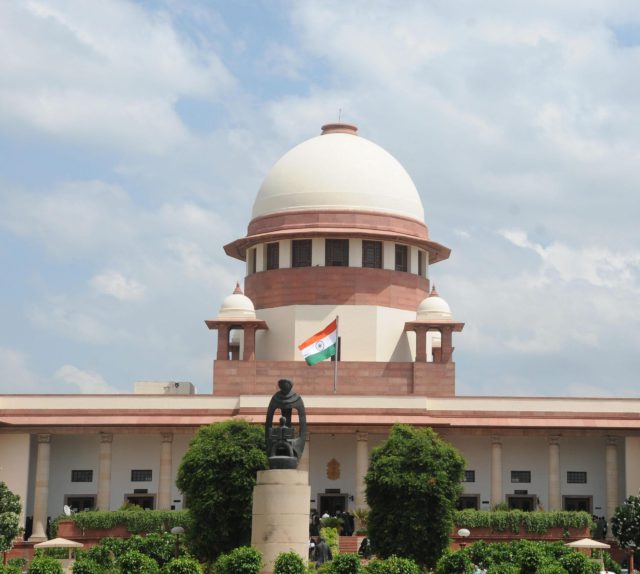Supreme Court to pronounce verdict on pleas against demonetisation today
Supreme Court had directed Centre and Reserve Bank of India (RBI) to submit relevant record relating to government's 2016 decision
New-Delhi: The Supreme Court is scheduled to pronounce its judgment today on pleas challenging the government’s 2016 decision to demonetise currency notes of Rs 1,000 and Rs 500 denominations.
A five-judge Constitution bench headed by Justice S A Nazeer is likely to pronounce its verdict on the matter on January 2.
The five-judge bench are Justices S A Nazeer, B R Gavai, B V Nagarathna, Justices A S Bopanna and V Ramasubramanian.
On December 7, Supreme Court had directed Centre and Reserve Bank of India (RBI) to submit relevant record relating to government’s 2016 decision and reserved its verdict.
The bench also comprising Justices B.R. Gavai, A.S. Bopanna, V. Ramasubramanian, and B.V. Nagarathna – said: “Counsel of the Union of India and Reserve Bank of India are directed to produce the relevant records.”
Attorney General R. Venkataramani represented the Centre, senior advocate Jaideep Gupta represented the RBI, and senior advocates P. Chidambaram and Shyam Divan appeared for the some of the petitioners. The AG had contended that he would submit the relevant records in a sealed cover.
During the hearing on the matter, Justice Nagarathna had said the courts will not go into the merits of the decision, but it can always go into the manner it was taken, as the two things are totally different.
“Because it is an economic policy, the court cannot fold its hand and sit. Merits of the decision, it is for the government in its wisdom it knows what is best for the people, but while taking that decision what was the material on record, relevant considerations,” she said.
Chidambaram, representing a petitioner, said the government had confidently defended the decision and also the decision-making process (involved in 2016 demonetisation), and added they should place those documents before the court.
He said that if the government were to adopt a route through the Parliament, then the parliamentarians would have stopped the policy but they did not follow the legislative route.
Chidambaram submitted that the RBI Governor must be fully aware of the fact that in 1946 and 1978, the RBI opposed demonetisation and they resorted to plenary power of legislature.
“Surely the history of RBI is published by the RBI. They must be deemed to know that also,” he said, urging the court to see the documents to see whether the decision-making was fair and not arbitrary.
The Centre had told the Supreme Court that the November 2016 decision to withdraw legal tender of Rs 500 and 1,000 currency notes was one of the critical steps in the series of transformational economic policy steps and this decision was taken after extensive consultation with the RBI and advance preparations.
The Ministry of Finance, in an affidavit, said: “The withdrawal of legal tender character of a significant portion of total currency value was a well-considered decision. It was taken after extensive consultation with the RBI and advance preparations.”
It further added that demonetisation was also a part of a larger strategy for combating the menace of fake money, terror financing, black money and tax evasion. “The notification issued on 08.11.2016 was a major step to fight the menace of fake currency notes, storage of unaccounted wealth and financing of subversive activities,” it said.




 Ms Kalinga
Ms Kalinga